Coronavirus: test-and-trace callers worked just 1% of paid hours, watchdog finds
Damming report calls for urgent improvements to £22bn system that failed to avert second lockdown
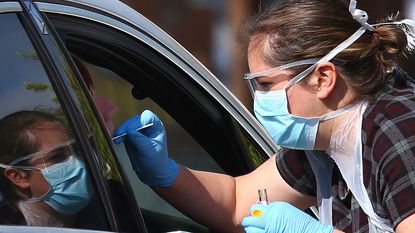
Call handlers for the £22bn NHS Test and Trace scheme worked just 1% of their paid hours during the failed push to avert a second lockdown, according to the government’s spending watchdog.
In a newly published report, the National Audit Office (NAO) says that the low “utilisation rates” of 18,000 call handlers employed in May saw just 32% of people infected with Covid reached by the service over the ensuing months - well below the government’s target of 44%.
“Auditors found that clinical workers employed by the project were also barely used in the programme’s early months”, working only 4% of their paid hours, says The Telegraph.
Subscribe to The Week
Escape your echo chamber. Get the facts behind the news, plus analysis from multiple perspectives.

Sign up for The Week's Free Newsletters
From our morning news briefing to a weekly Good News Newsletter, get the best of The Week delivered directly to your inbox.
From our morning news briefing to a weekly Good News Newsletter, get the best of The Week delivered directly to your inbox.
Workers told the paper back in August that they were effectively being “paid to watch Netflix”, with one employee claiming to have received £4,500 in wages without getting a single call.
The government “has now reduced the number of call handlers, but rates of use remained below a 50% target throughout September and much of October”, says an article on the BMJ website.
The NAO report describes how the case for spending more on test-and-trace services was framed as a means by which to avoid another lockdown - an effort that proved unsuccessful.
The watchdog concludes that there was “unclear accountability” in relation to both who was responsible for running the system and the awarding of contracts.
Presenting the findings, NAO chief Gareth Davies said: “Test and Trace is core to the UK’s pandemic response. It must improve its performance with a focus on effective engagement.”
Labour MP Meg Hillier, chair of the Commons Committee of Public Accounts, has also called on Test and Trace bosses to up their game. “The government needs to urgently work out what’s going wrong at every step of the process,” she said. “Throwing more money at the problem clearly isn’t the answer.
“The good news about vaccines doesn’t mean we don’t need a match-fit test-and-trace system now – and one ready for the planned step-up to mass testing.”
Create an account with the same email registered to your subscription to unlock access.
Sign up for Today's Best Articles in your inbox
A free daily email with the biggest news stories of the day – and the best features from TheWeek.com
Joe Evans is the world news editor at TheWeek.co.uk. He joined the team in 2019 and held roles including deputy news editor and acting news editor before moving into his current position in early 2021. He is a regular panellist on The Week Unwrapped podcast, discussing politics and foreign affairs.
Before joining The Week, he worked as a freelance journalist covering the UK and Ireland for German newspapers and magazines. A series of features on Brexit and the Irish border got him nominated for the Hostwriter Prize in 2019. Prior to settling down in London, he lived and worked in Cambodia, where he ran communications for a non-governmental organisation and worked as a journalist covering Southeast Asia. He has a master’s degree in journalism from City, University of London, and before that studied English Literature at the University of Manchester.
-
 Who actually needs life insurance?
Who actually needs life insurance?The Explainer If you have kids or are worried about passing on debt, the added security may be worth it
By Becca Stanek, The Week US Published
-
 Sexual wellness trends to know, from products and therapies to retreats and hotels
Sexual wellness trends to know, from products and therapies to retreats and hotelsThe Week Recommends Talking about pleasure and sexual health is becoming less taboo
By Theara Coleman, The Week US Published
-
 Is the AI bubble deflating?
Is the AI bubble deflating?Today's Big Question Growing skepticism and high costs prompt reconsideration
By Joel Mathis, The Week US Published
-
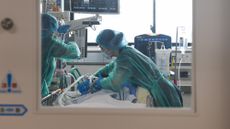 Pros and cons of universal health care
Pros and cons of universal health carePros and Cons A medical system that serves everyone comes with its own costs, and they're not only financial
By Rebecca Messina, The Week UK Published
-
 Covid four years on: have we got over the pandemic?
Covid four years on: have we got over the pandemic?Today's Big Question Brits suffering from both lockdown nostalgia and collective trauma that refuses to go away
By Chas Newkey-Burden, The Week UK Published
-
 The hollow classroom
The hollow classroomOpinion Remote school let kids down. It will take much more than extra tutoring for kids to recover.
By Mark Gimein Published
-
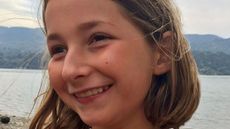 Martha's Rule: patients given right to urgent second opinion
Martha's Rule: patients given right to urgent second opinionThe Explainer Hospitals in England will launch new scheme that will allow access to a rapid treatment review
By Richard Windsor, The Week UK Published
-
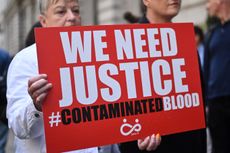 The contaminated blood scandal
The contaminated blood scandalThe Explainer Widely regarded as the worst treatment disaster in the history of the NHS, the public inquiry is due to publish its report in May
By The Week UK Published
-
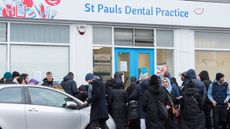 Can Britain's dental crisis be fixed?
Can Britain's dental crisis be fixed?The Explainer New proposals include more money for dentists working in under-served areas
By Richard Windsor, The Week UK Published
-
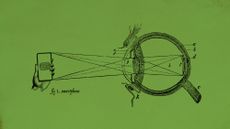 Excess screen time is making children only see what is in front of them
Excess screen time is making children only see what is in front of themUnder the radar The future is looking blurry. And very nearsighted.
By Devika Rao, The Week US Published
-
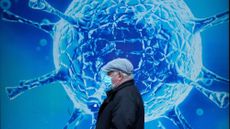 Covid-19: what to know about UK's new Juno and Pirola variants
Covid-19: what to know about UK's new Juno and Pirola variantsin depth Rapidly spreading new JN.1 strain is 'yet another reminder that the pandemic is far from over'
By Arion McNicoll, The Week UK Published